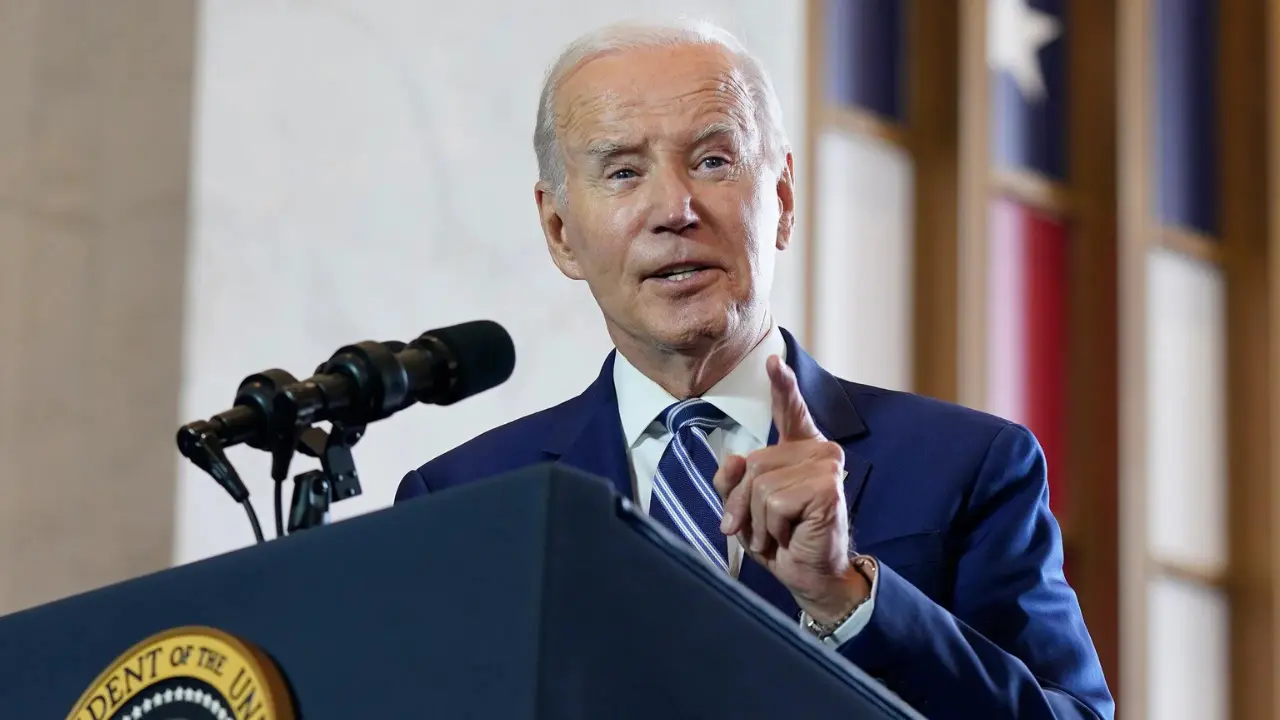A new book by political historians John B. Judis and Ruy Teixeira highlights a concerning trend for the Democratic Party: the loss of support among working-class minorities. In their book, “Where Have All the Democrats Gone?: The Soul of the Party in the Age of Extremes,” the authors argue that Democrats have steadily lost the allegiance of everyday Americans, including working- and middle-class voters who were once at the core of the party’s coalition.
This includes not only white voters but also Latino and Asian working-class voters. The book suggests that if Democrats want to remain competitive with the Republican Party, they need to reflect on their failures and address the changing political landscape.
Democrats losing support among working-class minorities
The Democratic Party has historically enjoyed support from working-class minorities, as well as other groups such as young people, women, and educated professionals. However, a new book by political historians John B. Judis and Ruy Teixeira, titled “Where Have All the Democrats Gone?: The Soul of the Party in the Age of Extremes,” warns that the Democrats are losing a critical voting base – working-class minorities.
In their earlier book, “The Emerging Democratic Majority,” Judis and Teixeira argued that the working-class, minorities, along with other groups, would form the foundation of a majority Democratic coalition. However, in their latest work, they assert that the Democrats have steadily lost the allegiance of working- and middle-class voters, who were once at the core of the New Deal coalition.
While the Democratic Party has traditionally had significant support among black voters, even their margins in this group have declined in recent years. In addition, Democrats have also begun to lose support among Latino and Asian working-class voters. This loss of support among working-class minorities could undermine the Democrats’ chances of not only being the majority party but also being competitive with the Republican Party.
The authors argue that one of the reasons for this shift is the changing political landscape in the era of former President Donald Trump. They also point to the left’s embrace of what conservatives consider “woke politics” as a factor in losing support among working-class voters. The authors urge Democrats to engage in self-reflection and examine how their own failures have contributed to the rise of extreme tendencies in the political right.
Emerging Democratic Majority
In their earlier book, “The Emerging Democratic Majority,” John B. Judis and Ruy Teixeira proposed that the Democratic Party’s future lay in building a coalition of the working class, minorities, young people, women, and educated professionals. This emerging majority was seen as the key to Democratic dominance in electoral politics.
The idea behind the emerging Democratic majority was based on demographic trends and shifting political landscapes. Judis and Teixeira argued that as the country became more diverse and urbanized, the Democratic Party had a unique opportunity to build a broad coalition that could bring together various groups with shared interests and values. This coalition would be the foundation of a new majority that could dominate American politics for years to come.
However, their latest work, “Where Have All the Democrats Gone?: The Soul of the Party in the Age of Extremes,” paints a different picture. The authors argue that the Democrats have failed to maintain the support of working-class minorities, which undermines the notion of an emerging Democratic majority. This loss of support among working-class voters, including black, Latino, and Asian voters, poses a significant challenge to the Democratic Party’s future electoral prospects.
Changing dynamics in the political landscape
The political landscape in the United States has undergone significant changes in recent years. These changes have had implications for the Democratic Party’s support among working-class minorities.
According to the book “Where Have All the Democrats Gone?: The Soul of the Party in the Age of Extremes,” by John B. Judis and Ruy Teixeira, the era of former President Donald Trump played a role in shifting support away from the Democrats. The authors argue that Trump found a way to exploit the Democrats’ weaknesses and appeal to working-class minority voters.
The book suggests that the left’s embrace of what conservatives would describe as woke politics has also contributed to the loss of support among working-class minorities. The authors argue that the focus on cultural issues has overshadowed economic concerns that are of utmost importance to these voters.
These changing dynamics in the political landscape have resulted in a defection of working-class voters from the Democratic Party. The authors warn that this loss of support could undermine the Democrats’ chances of being competitive with the Republican Party and maintaining their status as the majority party.
Woke politics and its impact
In recent years, the Democratic Party has embraced what conservatives often refer to as woke politics. This refers to a focus on issues related to identity, social justice, and cultural progressivism. While these issues are important to many voters, they may have unintended consequences for the Democratic Party’s support among working-class minorities.
In their book “Where Have All the Democrats Gone?: The Soul of the Party in the Age of Extremes,” John B. Judis and Ruy Teixeira argue that the left’s embrace of woke politics has contributed to the loss of support among working-class minorities. The authors suggest that working-class voters, including black, Latino, and Asian voters, are more concerned with economic issues than with identity politics.
According to the authors, the Democrats’ shift toward a focus on cultural issues has overshadowed economic concerns that are of utmost importance to working-class minority voters. This has created a disconnect between the Democratic Party and these voters, leading to a decline in support.
The authors urge Democrats to engage in self-reflection and consider the extent to which their own failures have contributed to the rise of more extreme tendencies on the political right. They argue that the party needs to refocus on economic issues and address the concerns of working-class minorities to regain their support.
Mirror for self-reflection
In their book “Where Have All the Democrats Gone?: The Soul of the Party in the Age of Extremes,” John B. Judis and Ruy Teixeira suggest that the Democratic Party needs to look in the mirror and examine the extent to which their failures have contributed to the loss of support among working-class minorities.
The authors argue that the Democrats’ focus on cultural issues and identity politics has overshadowed the economic concerns that are of paramount importance to working-class minority voters. This disconnect between the party’s priorities and the concerns of these voters has led to a decline in support.
Judis and Teixeira urge the Democratic Party to engage in self-reflection and consider how they can address the concerns of working-class minorities. They believe that by refocusing on economic issues and offering solutions that resonate with these voters, the Democrats can regain their support.
The authors’ call for self-reflection serves as a reminder that political parties must constantly evaluate their strategies and adapt to changing circumstances. By critically examining their failures, the Democratic Party can gain insights and make the necessary adjustments to better serve their constituents.
Interview with the authors
In a recent interview with Time magazine, John B. Judis and Ruy Teixeira, authors of “Where Have All the Democrats Gone?: The Soul of the Party in the Age of Extremes,” expanded on their analysis of the Democratic Party’s loss of support among working-class minorities.
Teixeira pointed out that former President Donald Trump found a way to exploit the Democrats’ weaknesses and appeal to working-class minority voters. He argued that Trump understood the concerns of these voters and effectively played upon them, gaining their support in the 2016 election and continuing to do so in the lead-up to the 2024 presidential election.
The authors also highlighted the weaknesses of the Democratic Party among non-white working-class voters, particularly Hispanic and Black voters. They cited polling data collected in the last year or two that showed significant weaknesses among these groups.
According to Judis and Teixeira, the Democrats’ focus on cultural issues and their concern about blowback on social media and from college-educated Democratic voters have contributed to their failure to address the concerns of working-class minorities. They argued that the party needs to prioritize economic issues and take steps to regain the support of these voters.
Trump’s exploitation of Democrat weaknesses
Former President Donald Trump was able to exploit the weaknesses of the Democratic Party and appeal to working-class minority voters, according to John B. Judis and Ruy Teixeira, authors of “Where Have All the Democrats Gone?: The Soul of the Party in the Age of Extremes.”
Trump understood the concerns and priorities of working-class minority voters and effectively played upon them. He gained their support in the 2016 election and continued to do so in the lead-up to the 2024 presidential election, where he remains a commanding frontrunner.
The authors argue that the Democrats’ weaknesses among non-white working-class voters have created an opportunity for Trump. They believe that the Democratic Party needs to address these weaknesses and find ways to regain the support of working-class minorities.
Trump’s ability to exploit the Democrats’ weaknesses highlights the importance of understanding voters’ concerns and effectively communicating with them. The Democratic Party must learn from these weaknesses and develop strategies to counter them in future elections.
Bernie Sanders’ warning to focus on economic issues
Senator Bernie Sanders has warned the Democratic Party about the importance of focusing on economic issues to maintain support among working-class minorities. In a speech at Saint Anselm College, Sanders emphasized the need for the party to address the concerns of working-class and minority voters.
Sanders highlighted the worrying trend of Democrats losing support within Latino communities and among African-American men. He argued that this loss of support is not just detrimental to the Democratic Party but also to the future of the country.
The senator’s warning aligns with the analysis presented by John B. Judis and Ruy Teixeira in their book. Sanders believes that Democrats must prioritize economic issues and offer solutions that resonate with working-class and minority voters to regain their support.
Sanders’s call for the party to refocus on economic concerns serves as a reminder of the importance of addressing the core needs and interests of voters. By prioritizing economic issues, the Democratic Party can work towards rebuilding support among working-class minorities.
Polls indicating Democratic loss of support among minorities
Polling data collected in recent years has indicated a significant loss of support for the Democratic Party among working-class minorities. John B. Judis and Ruy Teixeira, authors of “Where Have All the Democrats Gone?: The Soul of the Party in the Age of Extremes,” have highlighted these trends in their analysis.
The authors point to polling data that shows weaknesses among non-white working-class voters, particularly Hispanic and Black voters. The Democratic Party’s margins among these groups have declined, and there has been an overall loss of support.
These findings are consistent with the authors’ argument that the focus on cultural issues and the left’s embrace of woke politics have contributed to the decline in support among working-class minorities.
The polling data serves as evidence of the challenges facing the Democratic Party in maintaining support among these crucial voter groups. It underscores the need for the party to engage in self-reflection, refocus on economic issues, and find ways to effectively communicate their policies and priorities to working-class minorities.
Source – Fox News




2 thoughts on “Democrats in Crisis: Losing Working-Class Minority Support.”